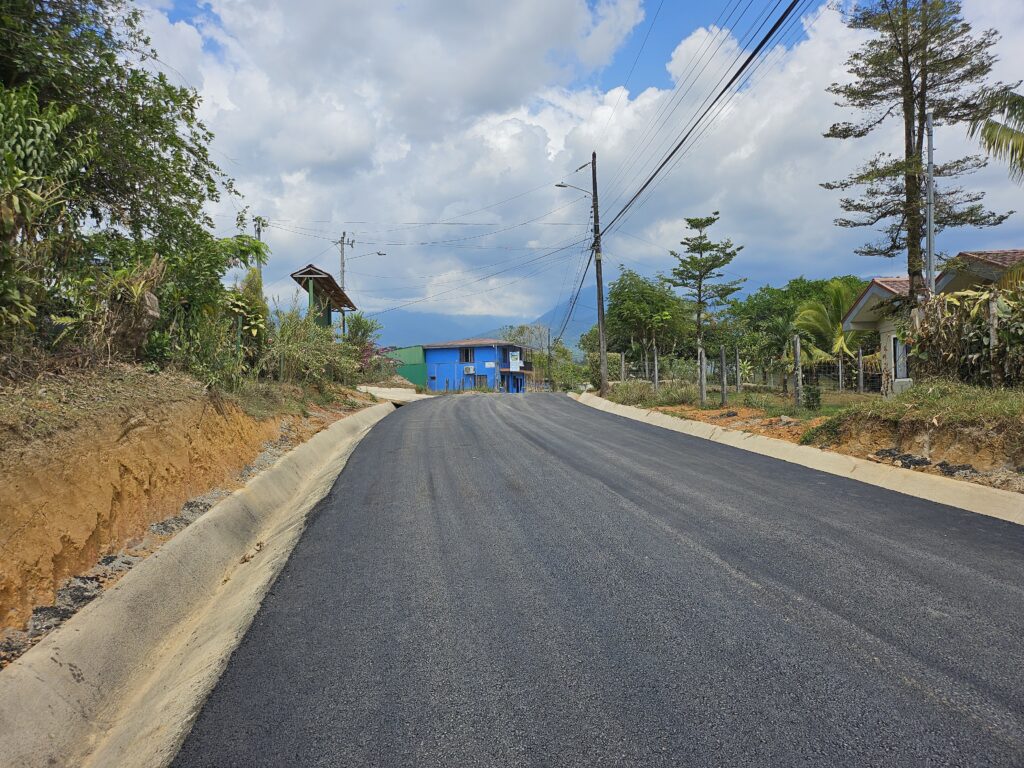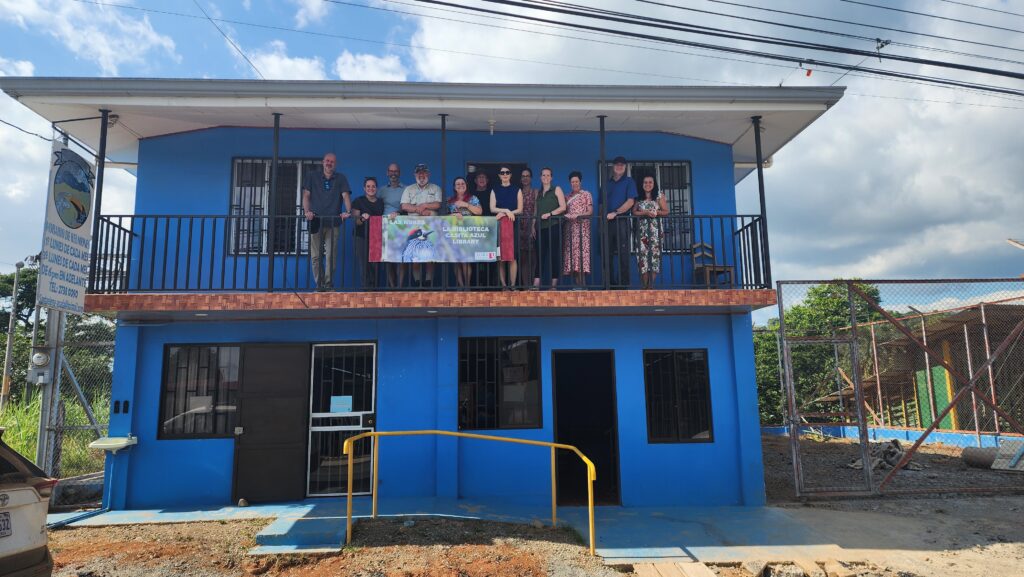York University’s Las Nubes eco-campus focuses on hosting students for experiential education opportunities and improving rural livelihoods with an emphasis on environmental conservation. Casita Azul, the little blue house, is in the unique position of not only operating as an academic library in service to the Las Nubes mission, but also as a community hub that strives to provide opportunities for the local population of the Alexander Skutch Biological Corridor while advancing UN Sustainable Development Goals.
Located in the heart of Santa Elena, Casita Azul resides in a donated space in a building owned by ASADA (a local water association). What started as a single-room endeavour, now occupies the entire second floor of ASADA’s building, providing access to the internet, housing books, computers and other materials needed to align the library’s offerings with the needs of the local communities.
Casita Azul’s integration in the Environmental Education Coalition for the Alexander Skutch Biological Corridor sees it working closely with Los Cusingos Bird Sanctuary at the Tropical Science Centre, and ASADA to train the adult population of the seven communities that make up the biological corridor. The Coalition’s efforts to provide educational opportunities to the local population align with UNSDG 4: Inclusive and Equitable Quality Education and Promotion of Lifelong Learning Opportunities for All. These efforts are augmented by the collaborative partnership agreements in place with national educational institutions such as the INA (National Institute of Learning). Collaborative partnership agreements with national educational institutions such as the INA (National Institute of Learning) augment these efforts.
Significant inclusion into a tight-knit community “took a lot of human interaction to gain people’s trust. We wanted to be a part of the conversations that generated care for people’s immediate surroundings and their wellbeing,” says Dana Craig, teaching and learning librarian at York University Libraries. “Casita Azul became a part of pre-existing committees — Group of Women, Group of the Bakery, Soccer Group — and introduced ourselves. We asked how a library can be of service to them and then tried our best to align York’s mission and values with the specific needs of the biological corridor.”
The courses and programming offered at Casita Azul directly focus on serving the articulated needs of the local communities. When initially faced with the challenge of finding experts to supplement the educational curriculum a decade ago, Dana and Tom quickly realized local experts held a treasure-trove of knowledge. The investment that Casita Azul has put into the community has established the library as a hub for knowledge sharing, attracting the interest of community members who have expertise they want to contribute back. As a result, Casita Azul has hosted computer classes taught by a local engineering student, and English classes in beginner and intermediate levels taught by Costa Rican academics and a retired US academic now living in Costa Rica.
Workshops facilitated by local experts include creating mosaic ornaments with glass and wood, how to start a small business, healthy best practices after COVID, and creating art with recycled materials. “We were delighted to find a local expert who taught community members how to care for and grow a successful small business with orchids,” adds Tom Scott, senior scholar. Local-led workshops hosted at Casita Azul have led to community discussions on how to enhance sustainability within the corridor, aligning their educational initiatives with UNSDG 12: Ensuring Sustainable Consumption and Production Patterns. The workshops that create art with recycled materials reflect these discussions, as well as the community’s dedication to continuing the bi-monthly recycling program.
Costa Rican academic institutions have been instrumental in aiding Casita Azul to carry out its mission to provide educational programs for the local community. Students and professors from Universidad Latina de Costa Rica, Universidad Nacionale, and Universidad de Costa Rica have volunteered their time to instruct English classes and teach workshops on topics such as filmmaking and community health.
Casita Azul’s collaborative partnership agreement with INA has furthered opportunities for community members seeking enhanced work and economic opportunities, advancing UNSDG 8. Course offerings include certification programs in organic farming, customer service, teamwork, and a 3-month business administration course with weekly meetings.
“We’re trying to have a bigger lens on what the environmental impact is within the corridor, recognizing that these families are living off the land in the corridor. Everyone is impacted. We had to offer alternative methods of farming, waste reduction and economic growth opportunities,” explains Tom. “We couldn’t just ask them not to use fertilizers, we had to offer an alternative and explain the benefits to the ecosystem. Offering these alternatives allows us to align closer with protecting life on land, as per UNDSG 15.”
Dana, reflecting on the experience and journey of integration into the biological corridor’s community, says “where we initially started by becoming members of private committees to conduct outreach and collect feedback, we are now sought after, as community members.” She adds, “we are able to truly see ourselves as the eighth community in the biological corridor because our neighbours appreciate our building of connections that matter with people who care about benefiting the community.”


